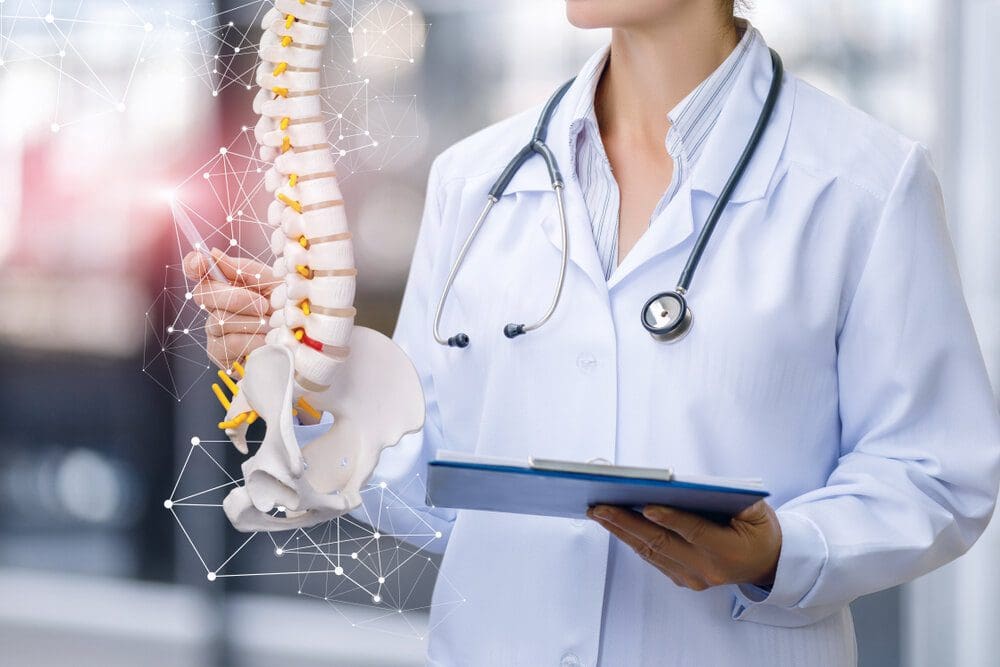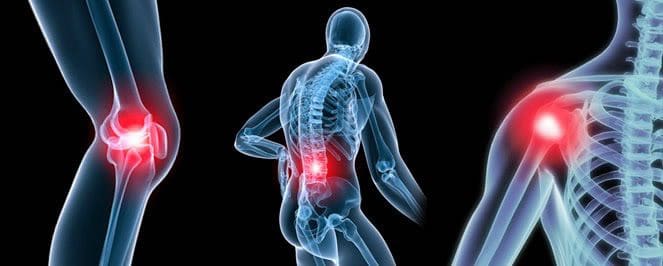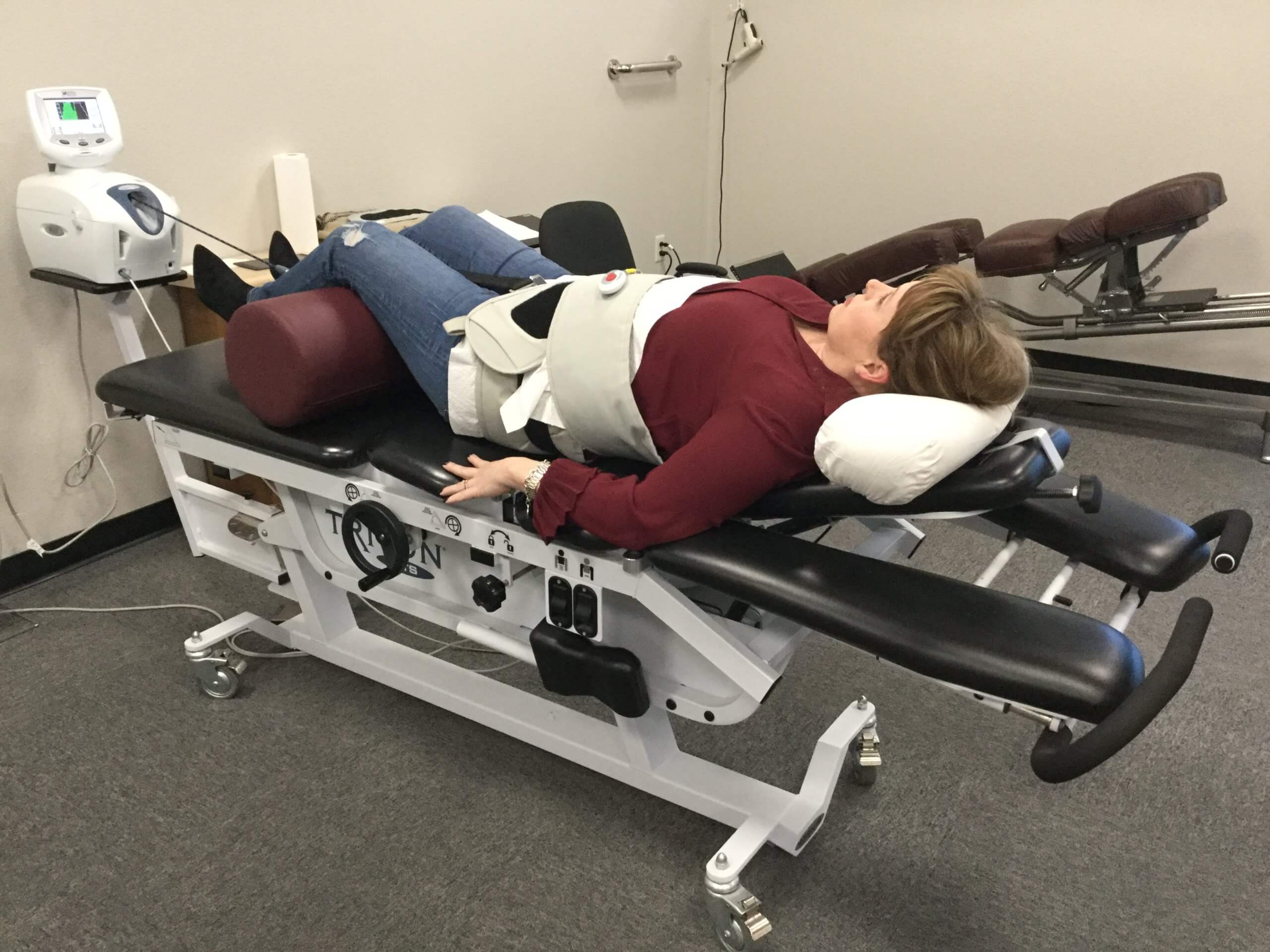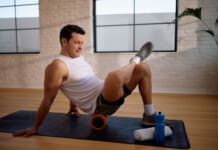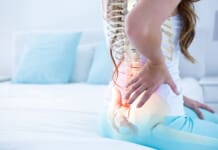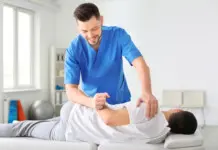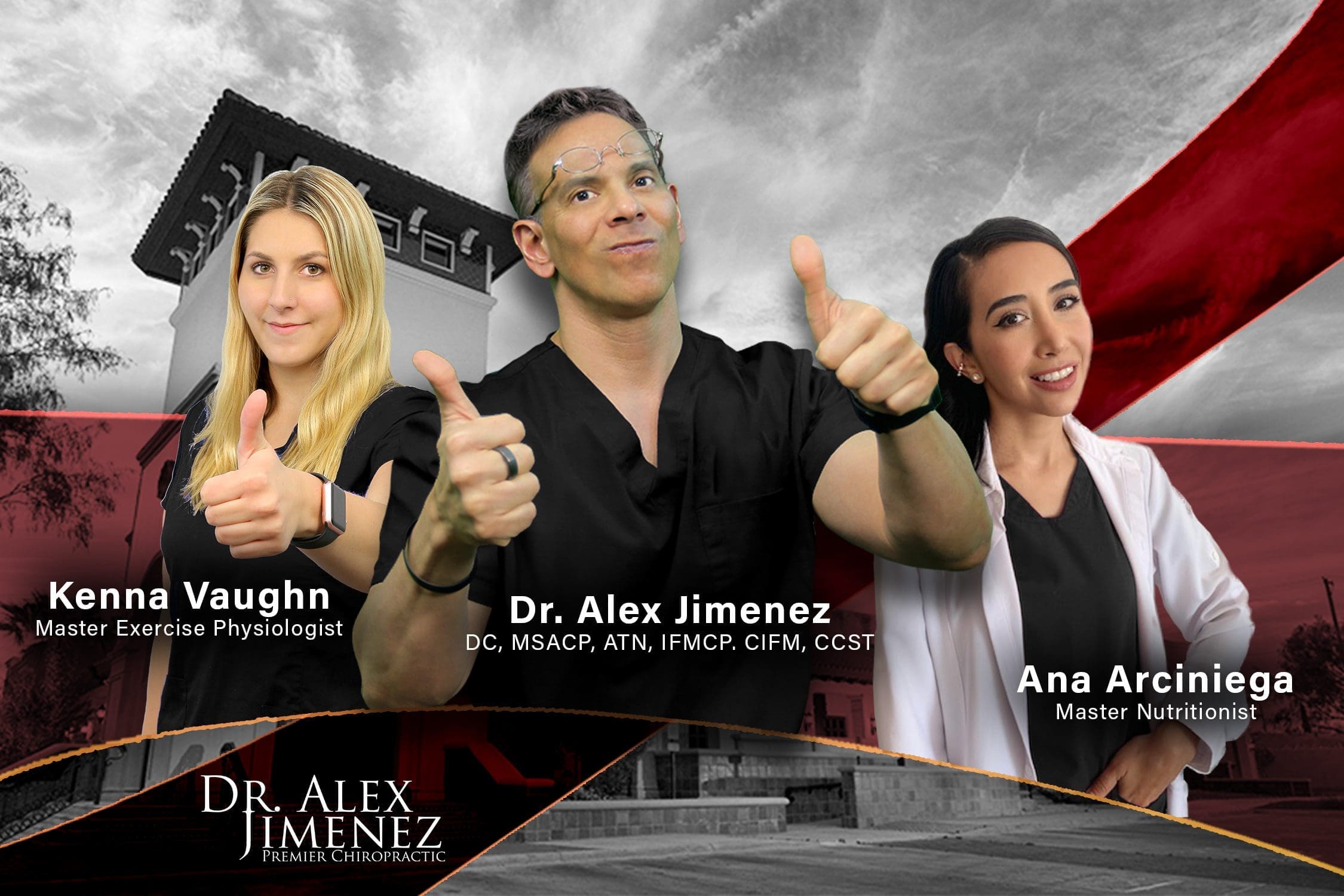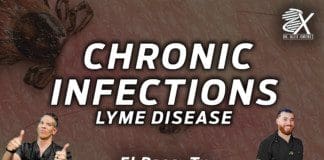Table of Contents
Introduction
The body utilizes the spine to make sure that everything is moving, bending, twisting, and turning without feeling any pain from the back. The spine is an S-shaped curve protected by ligaments, soft tissue from the musculoskeletal system, the spinal cord, and spinal discs. When the back suffers from an injury or has pulled a muscle, it can cause chronic issues to the back and make a person’s life miserable. Luckily there are therapeutic ways to relieve chronic back issues and can alleviate the symptoms it has caused to the individual. In this article, we will be looking at musculoskeletal disorders and their symptoms and how decompression therapy has an effect on alleviating musculoskeletal disorders from the back. By referring patients to qualified and skilled providers specializing in spinal decompression therapy. To that end, and when appropriate, we advise our patients to refer to our associated medical providers based on their examination. We find that education is the key to asking valuable questions to our providers. Dr. Alex Jimenez DC provides this information as an educational service only. Disclaimer
Can my insurance cover it? Yes, it may. If you are uncertain, here is the link to all the insurance providers we cover. If you have any questions, please call Dr. Jimenez at 915-850-0900.
What Are Musculoskeletal Disorders?
As research studies have stated, the musculoskeletal system combines bone, muscles, tendons, ligaments, and soft tissues that work together to support the body’s weight and help individuals move. The spine is located at the back of the body, where it connects to the musculoskeletal tissues and keeps it upright. Many individuals must keep their musculoskeletal system healthy and functional; however, a wide range of disorders and conditions can affect the musculoskeletal system making the body succumb to diseases and injuries that can limit its movement. This is known as musculoskeletal disorders.
Research studies have found that musculoskeletal pain and disorders affect the bones, joints, ligaments, muscles, and tendons throughout the entire body. Sometimes the pain can become acute, and it can become sudden and severe or chronic, which can hinder a person’s ability to do any daily activities. Some of the most common types of musculoskeletal disorders that can affect the body include:
- Bone pain: Fractures or musculoskeletal injuries
- Joint pain: Stiffness and inflammation
- Muscle pain: Muscle spasms and cramps
- Tendon and ligament pain: Sprains, strains, and overused tissues
The Symptoms
Research studies have shown that musculoskeletal disorders are the leading source of pain and disability worldwide. With a variety of back and neck disorders, arthritic conditions, and soft tissue syndromes that involve the tendons, ligaments, muscles, and cartilages that make up the main bulk of musculoskeletal disorders, it can cause many people to go to their primary physician and get time off work. Other research studies have shown that the symptoms that are caused by musculoskeletal disorders include:
- Stiffness
- Fatigue
- Muscle spasms
- Joint aches
- Fibromyalgia
- Swelling
- Low Back Pain
The Chattanooga Triton Traction Table-Video

The video above shows how the Chattanooga Triton is being used to alleviate back issues that have been affected by musculoskeletal disorders. Traction therapy is a form of spinal decompression therapy that utilizes traction on a person’s spine, gently stretching it. This will cause the beneficial nutrients and oxygen to go back into the spine and alleviate pain in the back. Since back pain is one of the most common types of musculoskeletal pain that can make a person miserable, decompression therapy can help with low back pain and make a person get back their quality of life. If you want to learn more about spinal decompression therapy, this link will explain the benefits of spinal decompression and how it can alleviate low back pain symptoms.
How Does Decompression Therapy Help Musculoskeletal Disorders?
Decompression therapy is a non-surgical treatment that allows for individuals who have musculoskeletal disorders like low back pain. Decompression therapy allows the individual to lie down on the traction table, be strapped in, and the traction machine gently pulls on the spine to cause instant relief. Research studies have found that utilizing decompression therapy and even physical therapy can help improve the lumbar range of motion, back muscle endurance, and functional disability that musculoskeletal disorders have caused. Other research studies have also shown that non-surgical spinal decompression therapy can reduce pain in the back and promote an increase in the spinal disc height and restore it. When individuals start to feel relief from their back, they can continue with their wellness journey.
Conclusion
All in all, musculoskeletal disorders are a wide variety of disorders that affects the bones, ligaments, tissues, and muscles all over the body. Low back pain is one of the most common musculoskeletal disorders that causes the individual to have pain and stiffness in the back muscles. Luckily treatments like spinal decompression therapy allow individuals who are suffering from feel relief from chronic back issues and gently stretch the spine to allow the beneficial nutrients to re-hydrate the spinal disc. With the combination of physical therapy, many individuals won’t have to suffer any longer, knowing that decompression may be their relief.
References
Amjad, Fareeha, et al. “Effects of Non-Surgical Decompression Therapy in Addition to Routine Physical Therapy on Pain, Range of Motion, Endurance, Functional Disability and Quality of Life versus Routine Physical Therapy Alone in Patients with Lumbar Radiculopathy; a Randomized Controlled Trial.” BMC Musculoskeletal Disorders, BioMed Central, 16 Mar. 2022, https://www.ncbi.nlm.nih.gov/pmc/articles/PMC8924735/.
Apfel, Christian C, et al. “Restoration of Disk Height through Non-Surgical Spinal Decompression Is Associated with Decreased Discogenic Low Back Pain: A Retrospective Cohort Study.” BMC Musculoskeletal Disorders, BioMed Central, 8 July 2010, https://www.ncbi.nlm.nih.gov/pmc/articles/PMC2912793/.
Malik, Khalid M, et al. “Musculoskeletal Disorders a Universal Source of Pain and Disability Misunderstood and Mismanaged: A Critical Analysis Based on the U.S. Model of Care.” Anesthesiology and Pain Medicine, Kowsar, 15 Dec. 2018, https://www.ncbi.nlm.nih.gov/pmc/articles/PMC6348332/.
Medical Professionals, Cleveland Clinic. “Musculoskeletal Pain: Types, Causes, Symptoms & Treatment.” Cleveland Clinic, 10 Mar. 2021, https://my.clevelandclinic.org/health/diseases/14526-musculoskeletal-pain.
Medical Professionals, Cleveland Clinic. “Musculoskeletal System: Arthritis, Lower Back Pain, Bones, Muscles.” Cleveland Clinic, 11 Dec. 2020, https://my.clevelandclinic.org/health/articles/12254-musculoskeletal-system-normal-structure–function.
Watson, Stephanie, and Cathy Lovering. “Musculoskeletal Pain: Causes, Symptoms, Treatment.” Healthline, Healthline Media, 22 Oct. 2021, https://www.healthline.com/health/tgct/musculoskeletal-pain.
Disclaimer
Professional Scope of Practice *
The information herein on "The Effects Of Decompression Therapy For Musculoskeletal Disorders" is not intended to replace a one-on-one relationship with a qualified health care professional or licensed physician and is not medical advice. We encourage you to make healthcare decisions based on your research and partnership with a qualified healthcare professional.
Blog Information & Scope Discussions
Welcome to El Paso's Premier Wellness and Injury Care Clinic & Wellness Blog, where Dr. Alex Jimenez, DC, FNP-C, a Multi-State board-certified Family Practice Nurse Practitioner (FNP-BC) and Chiropractor (DC), presents insights on how our multidisciplinary team is dedicated to holistic healing and personalized care. Our practice aligns with evidence-based treatment protocols inspired by integrative medicine principles, similar to those found on this site and our family practice-based chiromed.com site, focusing on restoring health naturally for patients of all ages.
Our areas of multidisciplinary practice include Wellness & Nutrition, Chronic Pain, Personal Injury, Auto Accident Care, Work Injuries, Back Injury, Low Back Pain, Neck Pain, Migraine Headaches, Sports Injuries, Severe Sciatica, Scoliosis, Complex Herniated Discs, Fibromyalgia, Chronic Pain, Complex Injuries, Stress Management, Functional Medicine Treatments, and in-scope care protocols.
Our information scope is multidisciplinary, focusing on musculoskeletal and physical medicine, wellness, contributing etiological viscerosomatic disturbances within clinical presentations, associated somato-visceral reflex clinical dynamics, subluxation complexes, sensitive health issues, and functional medicine articles, topics, and discussions.
We provide and present clinical collaboration with specialists from various disciplines. Each specialist is governed by their professional scope of practice and their jurisdiction of licensure. We use functional health & wellness protocols to treat and support care for musculoskeletal injuries or disorders.
Our videos, posts, topics, and insights address clinical matters and issues that are directly or indirectly related to our clinical scope of practice.
Our office has made a reasonable effort to provide supportive citations and has identified relevant research studies that support our posts. We provide copies of supporting research studies upon request to regulatory boards and the public.
We understand that we cover matters that require an additional explanation of how they may assist in a particular care plan or treatment protocol; therefore, to discuss the subject matter above further, please feel free to ask Dr. Alex Jimenez, DC, APRN, FNP-BC, or contact us at 915-850-0900.
We are here to help you and your family.
Blessings
Dr. Alex Jimenez DC, MSACP, APRN, FNP-BC*, CCST, IFMCP, CFMP, ATN
email: [email protected]
Multidisciplinary Licensing & Board Certifications:
Licensed as a Doctor of Chiropractic (DC) in Texas & New Mexico*
Texas DC License #: TX5807, Verified: TX5807
New Mexico DC License #: NM-DC2182, Verified: NM-DC2182
Multi-State Advanced Practice Registered Nurse (APRN*) in Texas & Multi-States
Multi-state Compact APRN License by Endorsement (42 States)
Texas APRN License #: 1191402, Verified: 1191402 *
Florida APRN License #: 11043890, Verified: APRN11043890 *
Colorado License #: C-APN.0105610-C-NP, Verified: C-APN.0105610-C-NP
New York License #: N25929, Verified N25929
License Verification Link: Nursys License Verifier
* Prescriptive Authority Authorized
ANCC FNP-BC: Board Certified Nurse Practitioner*
Compact Status: Multi-State License: Authorized to Practice in 40 States*
Graduate with Honors: ICHS: MSN-FNP (Family Nurse Practitioner Program)
Degree Granted. Master's in Family Practice MSN Diploma (Cum Laude)
Dr. Alex Jimenez, DC, APRN, FNP-BC*, CFMP, IFMCP, ATN, CCST
My Digital Business Card
Licenses and Board Certifications:
DC: Doctor of Chiropractic
APRNP: Advanced Practice Registered Nurse
FNP-BC: Family Practice Specialization (Multi-State Board Certified)
RN: Registered Nurse (Multi-State Compact License)
CFMP: Certified Functional Medicine Provider
MSN-FNP: Master of Science in Family Practice Medicine
MSACP: Master of Science in Advanced Clinical Practice
IFMCP: Institute of Functional Medicine
CCST: Certified Chiropractic Spinal Trauma
ATN: Advanced Translational Neutrogenomics
Memberships & Associations:
TCA: Texas Chiropractic Association: Member ID: 104311
AANP: American Association of Nurse Practitioners: Member ID: 2198960
ANA: American Nurse Association: Member ID: 06458222 (District TX01)
TNA: Texas Nurse Association: Member ID: 06458222
NPI: 1205907805
| Primary Taxonomy | Selected Taxonomy | State | License Number |
|---|---|---|---|
| No | 111N00000X - Chiropractor | NM | DC2182 |
| Yes | 111N00000X - Chiropractor | TX | DC5807 |
| Yes | 363LF0000X - Nurse Practitioner - Family | TX | 1191402 |
| Yes | 363LF0000X - Nurse Practitioner - Family | FL | 11043890 |
| Yes | 363LF0000X - Nurse Practitioner - Family | CO | C-APN.0105610-C-NP |
| Yes | 363LF0000X - Nurse Practitioner - Family | NY | N25929 |
Dr. Alex Jimenez, DC, APRN, FNP-BC*, CFMP, IFMCP, ATN, CCST
My Digital Business Card

